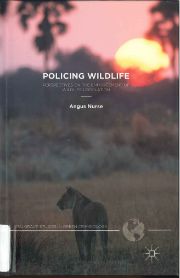Results
| Title | Citation | Alternate Citation | Agency Citation | Summary | Type |
|---|---|---|---|---|---|
| Shumate v. Drake University | 846 N.W.2d 503 (Iowa. 2014) | Plaintiff Shumate was barred from bringing a dog that she was training, into the classroom and to another school event. Shumate worked as a service dog trainer, while she was a student at Drake University Law School, the Defendant in this case. In 2011, Shumate filed a lawsuit alleging that Drake University discriminated against her as a service dog trainer in violation of Iowa Code chapter 216C. She alleged that chapter 216C, implicitly provided service dog trainers with a private right to sue. The Supreme Court of Iowa held that the statute does not provide service dog trainers with a private right to sue, nor did it include them under the coverage of chapter 216. The Court reasoned that although Shumate trained dogs to assist the disabled, she was not covered because she is not a person with a disability. The Court stated that closely related statutes expressly created private enforcement actions to aid the disabled while chapter 216C does not. Because an implied right of action would circumvent the procedures of the Iowa Civil Rights Act, the Iowa legislature purposely omitted a private right to sue from chapter 216C. The court vacated the decision of the court of appeals and affirmed the district court's judgment dismissing Shumate's petition with prejudice. | Case | ||
| DC - Dogs - § 22-1311. Allowing dogs to go at large. | DC ST § 22-1311 | DC CODE § 22-1311 | The following District of Columbia statute prohibits dogs that the owner knows to be fierce or dangerous, to the danger or annoyance of the inhabitants, from running at large; it also prohibits female dogs in heat to run at large. | Statute | |
| CT - Pet Trust - Chapter 802C. Trusts | C. G. S. A. § 45a-489a | CT ST § 45a-489a | Connecticut enacted its "pet trust" law in 2009. Under the law, a testamentary or inter vivos trust may be created to provide for the care of an animal or animals alive during the settlor's or testator's lifetime. The trust terminates when the last surviving animal named in the trust dies. The trust must designate a "trust protector" who acts on behalf of the animals named in the trust. | Statute | |
| UK - Dog - Breeding of Dogs Act 1991 | 1991 c. 64 |
This Act extends the powers of inspection for the purposes of the Breeding of Dogs Act 1973 to premises not covered by a licence under that Act, thereby enabling local authorities to investigate suspicions that a dog breeding establishment is operating without the necessary license |
Statute | ||
| Gill v. Prehistoric Ponds, Inc. | 634 S.E.2d 769 (Ga.App., 2006) | 2006 WL 1550709 (Ga.App.), 280 Ga.App. 629 (2006) |
In this Georgia case, the Court of Appeals held that, on issue of first impression, an alligator farm was not a "farm" within meaning of the state statute that exempted "farm laborers" or their employers from coverage under the Workers' Compensation Act (Gill was bitten while cleaning out a pen and subsequently developed both a bone infection and salmonella). In construing the relevant statutes, the court found that in the chapter on Employment Security Law (ESL), the legislature meant that individuals who raise or tend wildlife perform "agricultural labor," but only when they do so on a "farm," which is "used for production of stock, dairy products, poultry, fruit, and fur-bearing animals." Accordingly, the court concluded that when Gill cleaned out the alligator pens, he was caring for wildlife and thus performing "agricultural labor." However, his employer, an alligator farm, was not a "farm" because alligators are "wildlife," not "[live]stock ... [or] fur-bearing animals." |
Case | |
| Animal & Natural Resource Law Review Volume XIX |
Published by the students of Michigan State University College of LawAnimal & Natural Resource Law ReviewVol. |
Policy | |||
| AR - Hunting, remote - 002.00.1-05.08. Prohibited Methods for Hunting Wildlife | AR ADC 002.00.1-05.08 | Ark. Admin. Code 002.00.1-05.08 | This Arkansas regulation prohibits computer-assisted hunting, among other activities. | Administrative | |
| Policing Wildlife |
|
Policy | |||
| Research/Animal Testing | Policy | ||||
| US - Marine Mammals - Taking of Marine Mammals Incidental to Commercial Fishing Operations | 2000 WL 1214 (F.R.) | FR Doc. 99-33632 |
This interim final rule allows the entry of yellowfin tuna into the United States under certain conditions from nations fully complying with the International Dolphin Conservation Program (IDCP). It also allows U.S. vessels to set their purse seines on dolphins in the ETP. The standard for the use of "dolphin-safe" labels for tuna products also is changed. |
Administrative |
